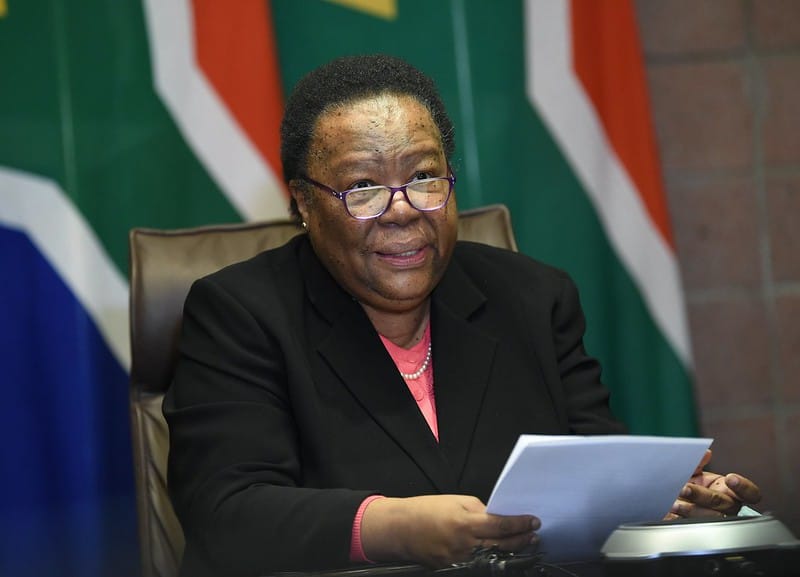March 20, 2024 (EIRNS)—South African Foreign Minister Naledi Pandor spoke at the Center for African Studies at Howard University on March 20. Minister Pandor is here to speak with people in the Administration and in Congress, but also in business and in the think tanks, NGOs and academia generally, to explain South Africa’s position on a variety of issues that have caused tension with the U.S. This includes, prominently, South Africa’s ICJ genocide submission and its general position on the Israeli operations in Gaza.
The event at Howard involved a largely academic crowd and the press were not invited. Pandor made clear that she did not view the United States, as she put it, as a “non-friend,” then noting that even among friends there can be differences. She also said she was not completely happy about the title of the Howard event “Speaking Truth to Power,” since she said that she “spoke truth” to everyone.
She began her comments underlining the importance of the Global South as a major factor in world politics. Because of this, she said, countries from the Global South now have a greater responsibility and must play a more important role. It was indeed one of the factors that had motivated South Africa in taking a very public stand on the matter of Gaza.
She said that South Africa had learned about democracy and human rights from the example of the United States and that they took these lessons seriously. These criteria should encompass all countries, she said, and when a country violates those norms, they should also be held to task, whether you like them or not. She also rejected the notion that people who condemn Israel on this issue are “anti-Semitic.” She made it very clear that when you go into a country and declare that you wish to eliminate the problem of hostility among the people by killing them or expelling them, it is quite clear that you are committing genocide. She cited the African philosophy of Ubuntu to describe South Africa’s principled stand, a concept variously translated as “humanity towards others” or “I am because we are.” There can be no “double standard” among nations in that respect, she insisted.
During the Q&A, she also pointed to the South African experience during apartheid. First, they issued resolutions demanding a change in the status of black Africans in the country. When that did not work, they organized protests. When these were crushed, they organized an underground, which carried out a variety of actions. That was the last resort, but it ultimately brought the issue to the attention of the world public, and thereby forced a change in the conditions in the country. She did not compare it to the situation in Gaza, but the comparison was probably self-evident.
Pandor also made the point that there should be no attempt to separate African nations based on geopolitical issues, referring, without mentioning particulars, to the U.S. attempt to organize African countries into an anti-China front. She underlined that South Africa supported the international order based on the United Nations. She added that it doesn’t preclude reform of the UN, stressing in particular the Security Council, where important measures can be stopped by the vote of a single country, and asserting that that had to be changed. “The United Nations must be able to act on questions of peace and security,” she said.
During the Q&A, she was also asked about climate change and environmental protection, about which she was also very clear. “You can’t talk about the environment without talking about development,” she said. She stressed that concern for the environment can only be implemented when you have “sustainable development.” She also emphasized the importance of scientific cooperation between the U.S. and South Africa, in particular, praising the role that Howard University had played in promoting such cooperation through the years.






